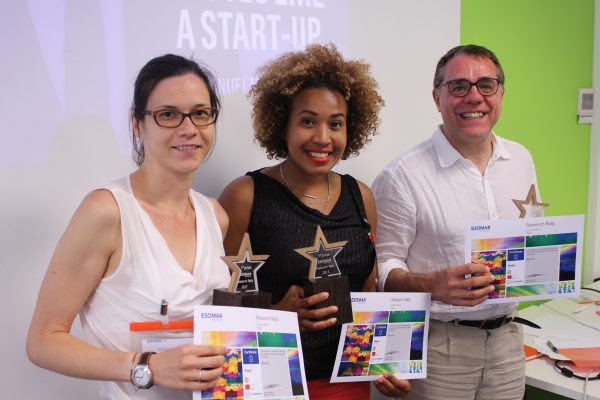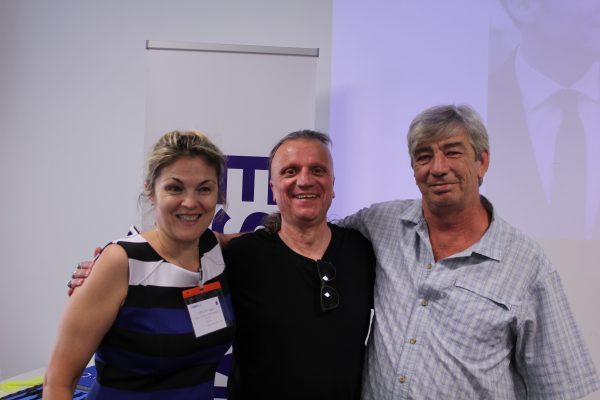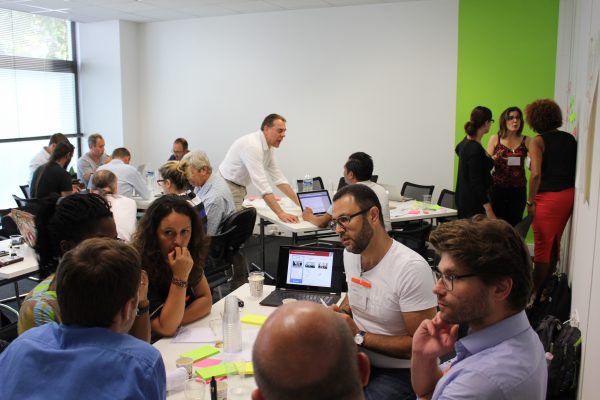By Thomas van Arman
Let’s face it, start-ups are hot. Start-ups have not only become the fastest growing trend in todays workforce but are also influencing new operational models that other industries and even governments are adopting. French President Emmanuel Macron announced last week that he wants France to be a start-up nation:“A nation that thinks and moves like a start-up”. The harsh reality is that (regardless of their business cycle) 80-90% of start-ups still fail. In fairness I don’t think Macron’s vision is to have his entire country experience “Fail Fast, Fail Often’, but rather accelerate the transition of tomorrows new work force of tomorrows’ Gig, Share or even Silver economy.
To reduce the failure rates we organised Paris’ first “Reverse Hackathon” to see how data, research and insights experts could help local start-ups improve their business models, products or services. In just 8 hours we validated how the data, research and insights industry could help start-ups and how start-ups can in return help them.
How does a “Reverse Hackathon” work?
Instead of start-ups pitching to the experts, we asked the experts to pitch to the startups!
ESOMAR approached me to design, develop and facilitate a new event format to reinvent the conventional hackathon which we aptly called “The Research Rally”. We launched the Rally concept last September in New Orleans (USA) at the ESOMAR Congress 2017, and then again in London (UK) early March. Last week was the first time French market research agencies and associations experienced a day-in-life start-up pressure cooker where they were asked to deploy the many tools, techniques and technologies at their disposal to solve the biggest problem facing 5 local start-ups.
It works like this: Insight professionals choose a challenge from a real local startup and then form a team with that start-up and compete against other teams for the main prize. At the finish line, a expert from the team stands on stage and presents their winning solution in the Best 3 Minutes pitch format. The eventual winner is scored by a jury of their peers and representatives from the startup who tally the score card on:
- Value – did the research result provide any tangible benefit?
- Relevance – was the research result or process useful to the startup?
- Execution – in your opinion how was the research conducted and implemented?
- Originality – was the solution clever or unique to either start-ups or Market Research?
- Teamwork – how well did teams work together?

First Place – SheFarms is an agribusiness start up that empowers and educates smallholder female farmers across the developing world. The winning solutions was: How SheFarms could create an additional revenue stream in developing countries. In one afternoon the team research revealed that 33% of the population would give money to this initiative. Using existing data they began to understand which data sets could be of most value that many of the illiterate woman could supply. They research team pitched the concept of 1) keep the data qualitative richness but add the quantitative abundance 2) test the business potential of various data sets FAST, and lastly 3) automate the analysis and insights of the process as a future big data solution. Congratulations!

Second Place – ARTADYS provides semantic insights of actual locations collecting and processing multiple data sources of social media, satellite data, IoT devices to make predictions about actual people, in actual places doing actual things. The research pitched for a media campaign of digital advertising to target the right audience at the right time. The research solution showed how B2B advertisers, media agencies and politicians could benefit by 1) cheap, affordable live and dynamic measurements, 2) direct & target communication channels, and 3) By removing any “Bot” interaction which will increase conversation with real people up to 75%. With these insights ARTADYS has already entered Richard Branson’s AIRBUS ONEWEB Global Earth Observation Challenge.

Runner-Up – Better Watt allows its customers to set a limit to their energy bill using a patented technology (connected objects to control HVAC and thermal modeling cloud service). The research team focused it’s target customers as facility managers of Hotels, Commercial & Residential buildings less than 10,000 sqm. The research found that 1) 75% of the time hotel door cards are left in rooms which waste electricity thus validating the Better Watt Occupancy Sensor technology. Pilots with hotels showed how their “dynamic coaching” can help facility managers, customers and especially cleaning teams save costs with Better Watts smart sensor monitoring of AC and lighting.
Participants wearing the Affect-tag bracelet confirmed that their emotional data clearly matched the point score of winning team – SheFarms
Neotrope’s Affect-tag turns emotions into actionable data. Via the light-weight wearable, this wristband senses physiological data and automates emotional states detection and recognition. During the afternoon, researchers proved that 66% of purchasing situations are initiated by emotional needs. The team asked 427 international consumers: “Would you be willing to wear for 7 days a discreet bracelet that measures in real time your emotions and intensity?” – a resounding 86% said “Oui”.
Take aways:
The ESOMAR Research Rally is clearly a “win-win” model for both the participating start-ups and the research industry as a whole. If today’s Market Research agencies and associations want to work with these hot-new start-ups then they need to think like a start-up. On the flip side, whether or not the start-ups won the main prize, these teams no doubt have already adapted, accelerated and grew thanks to the high-value professional insights from the data, research and insights experts.
Many thanks to Toluna Group for hosting the Paris Research Rally and for providing access to their Insight Platform of the world’s largest voting community.
How can a “Reverse-Hackathon” help you
No matter what industry you come from, a reverse hackathon can help. You’d be surprised how many accelerators and incubators can be found in your area. Find out how these young start-ups can help you and how you can engage and solve their biggest problem whether it be in government, finance, security, automotive, energy, education, health, agriculture and many many more.
Thomas van Arman is Founder & Director at Tapp


